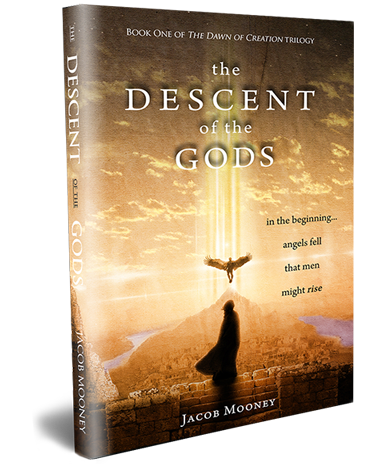
Among the earliest leaders of the church, Clement of Rome—recognized as either the second or third bishop of Rome and consecrated by the Apostle Peter—offers a striking early interpretation of Genesis 6:1–4, the mysterious passage about the “sons of God,” “daughters of men,” and the Nephilim.
His writing embraces the supernatural interpretation: that angels sinned by taking human wives, leading to their fall into corruption.
While many modern Christians are unfamiliar with Clement’s writings, he was deeply respected in the early church. His views provide a rare look at how first-century Christian leaders understood one of the most cryptic parts of Genesis. His perspective, while echoing ancient Jewish texts like 1 Enoch, remains uniquely pastoral—less apocalyptic, more moral and theological.
In this article, we’ll explore:
- Who Clement of Rome was
- What exactly he said about Genesis 6
- How it fits into early supernatural interpretations
- Why this ancient interpretation still matters
- What this means for how we read difficult texts today
Who Was Clement of Rome?
Clement I served as Bishop of Rome near the end of the first century (c. 88–99 AD). Traditionally identified as a successor to Peter—and possibly the same Clement mentioned in Philippians 4:3—his writings offer insight into how early Christians interpreted Scripture.
Clement’s most famous and undisputed work is 1 Clement, a letter urging peace among the Corinthians. However, later texts attributed to him, including parts of the Clementine Recognitions, offer deeper theological reflections—especially on the rebellion of spiritual beings.
In the Recognitions, Clement recounts how certain angels, grieved by human sin, requested to enter human life:
“For of the spirits who inhabit the heaven, the angels who dwell in the lowest region, being grieved at the ingratitude of men to God, asked that they might come into the life of men…”
— Clementine Recognitions, Book 1, Chapter 29
This short passage encapsulates the angelic descent motif—long before it was systematized by writers like Enoch or dramatized in apocryphal lore.
Clement’s Interpretation of Genesis 6:1–4
Unlike more mythic versions in 1 Enoch, Clement’s account is theological. He explains that certain angels were permitted to live among men to model divine behavior. But instead, they were overcome by lust and became trapped in their fleshly desires:
“…having become in all respects men, they also partook of human lust… they fell into cohabitation with women… and being involved with them, and sunk into defilement… were unable to turn back to the first purity of their proper nature.”
This sin led to a permanent fall:
“…they have no more been able to ascend into the heavens… being fettered with bonds of flesh, were constrained and strongly bound… they trode the impious path downward.”
Interpretive summary:
- Sons of God = angels
- Daughters of men = human women
- Nephilim = offspring or consequences of this rebellion
How This Fits with Ancient Jewish and Christian Thought
Clement’s view reflects a widespread early belief among Jews and Christians alike:
- 1 Enoch describes rebellious angels (the Watchers) fathering giants.
- Philo saw the “sons of God” as angels abandoning their spiritual roles.
- Josephus claimed angels took wives and sired giants (Antiquities 1.3.1).
- Justin Martyr, Irenaeus, and Tertullian affirmed angelic descent.
By contrast, Augustine shifted the interpretation to human lines (Sethite vs. Cainite), a view that later dominated Western Christianity.
🔍 Summary:
- Early interpreters saw Genesis 6 as supernatural.
- Clement’s account matches the pattern without sensationalism.
- Later theology distanced itself from this reading.
Why Clement’s Account Still Matters
This ancient reading offers unique insights today:
- Historical credibility — This interpretation predates modern speculation and reflects the beliefs of early Christian leaders.
- Scriptural integration — Clement’s view complements passages like 2 Peter 2:4 and Jude 6, which also speak of sinning angels.
- Moral reflection — His version is less about giants and more about the danger of spiritual compromise.
Could This View Help Modern Readers?
In many evangelical circles, Genesis 6 is either avoided or interpreted symbolically. Clement’s view challenges this:
- It forces us to ask: Why did the earliest Christians believe this?
- It reminds us that supernatural themes in Scripture are not fringe
Reclaiming the Ancient Reading
Clement of Rome’s interpretation of Genesis 6:1–4 is not a fringe idea—it’s a faithful record of how the early church understood one of Scripture’s strangest moments. His account, though brief, is pastoral, moral, and deeply rooted in biblical theology.
By recovering his interpretation, we:
- Connect with the early church’s supernatural worldview
- Gain tools for discerning truth amid sensational claims
Clement’s witness invites us not into fear, but into faith—a faith that dares to take Scripture seriously, even when it’s strange.
Author Bio:
Jake Mooney is a biblical researcher and storyteller focused on ancient mysteries in Genesis. He is the author of The Descent of the Gods and founder of Chasing the Giants. With over 25 years of study into Genesis 6, Second Temple literature, and angelic traditions, Jake is committed to helping readers recover the deep roots of biblical theology.






